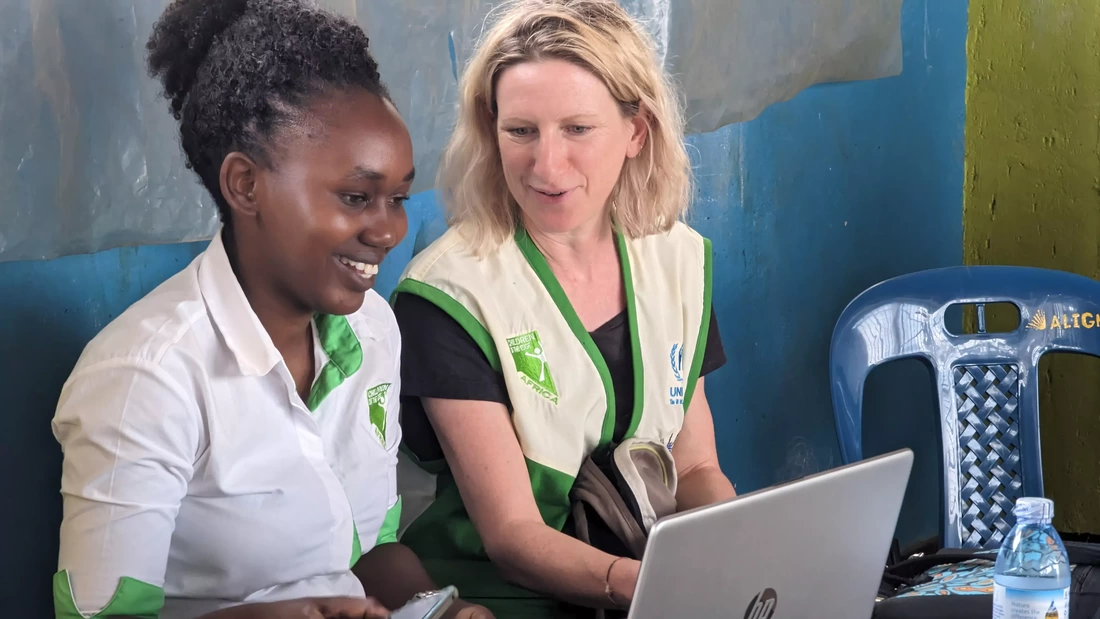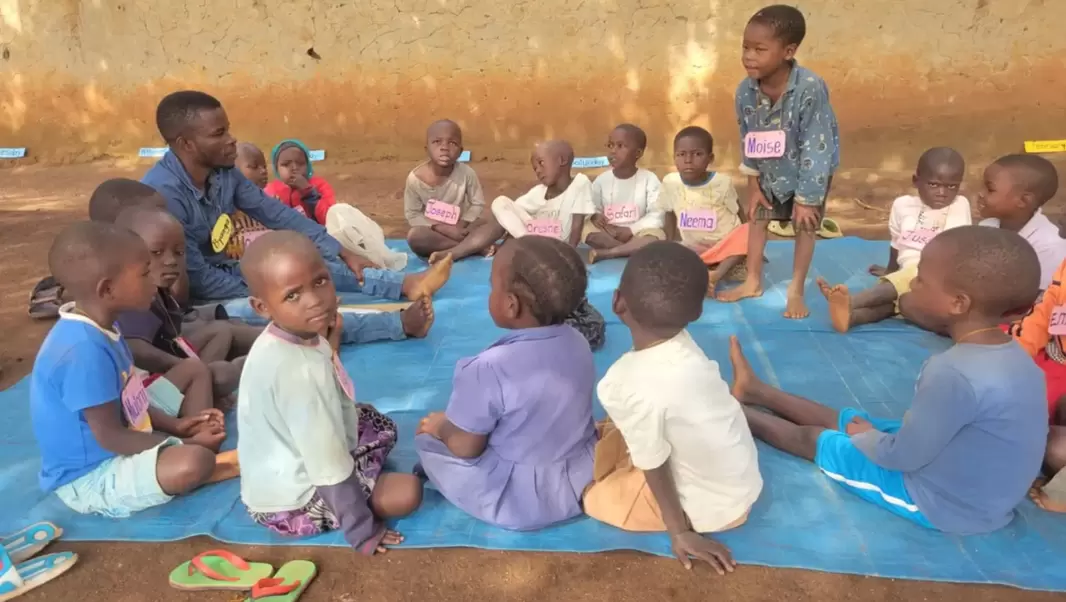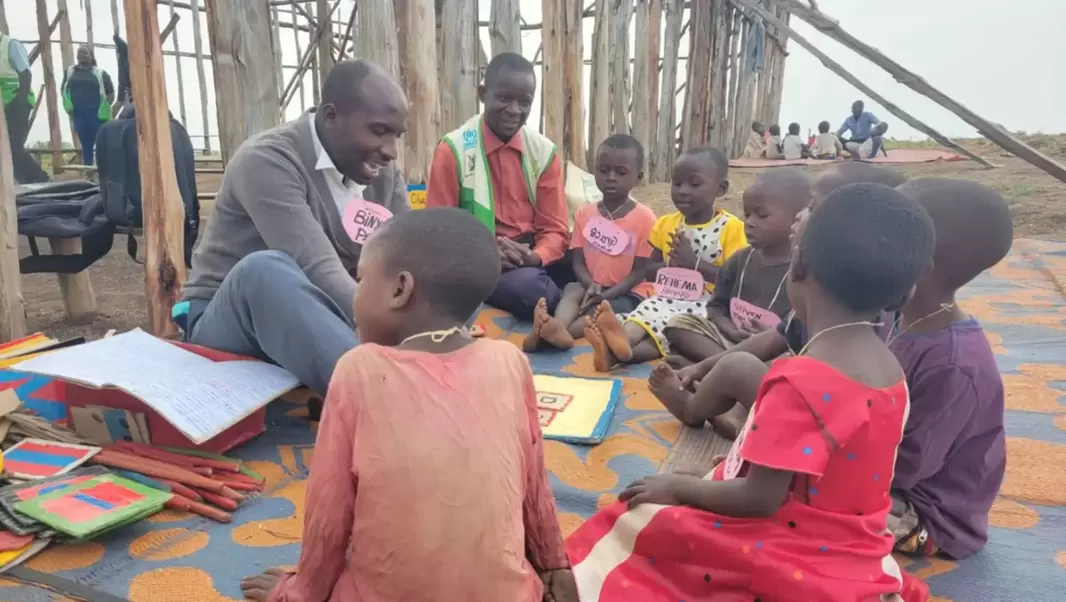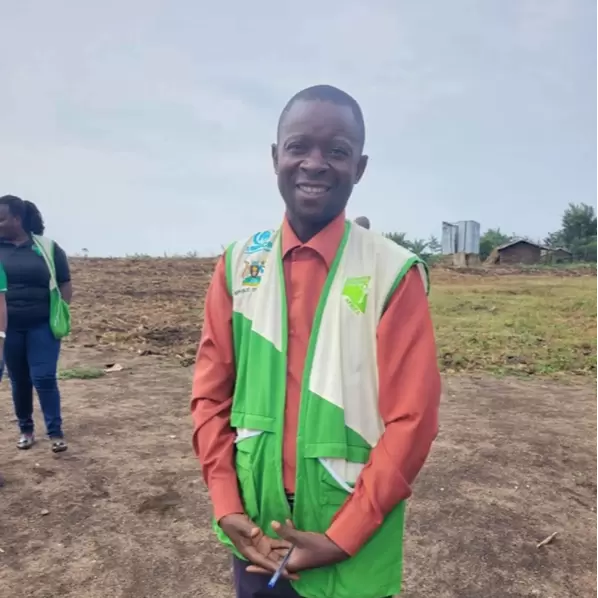|
I’ve recently returned from my first visit to Kyaka II refugee settlement in Uganda, where we provide pre-school learning to mainly refugee children from the Democratic Republic of the Congo (DRC). Here are some reflections from the trip… The reasons for my trip to Uganda were to meet and work with colleagues from Children on the Edge Africa, learn about the programme and the situation on the ground, and get a better understanding of how the monitoring of our work in Kyaka II is currently being done and could be done. I also wanted to understand problems and difficulties my colleagues encounter when collecting information, and hear stories from refugees. This was a lot to pack into the 2.5 days that my UK colleague Ben (Chief Operating Officer of Children on the Edge) and I had in Kyaka II! As expected, it was pretty intense, because we were learning the entire time and in an environment that was new to us. I had previously only met my colleagues at Children on the Edge Africa (COTEA) on video calls, which, as we know, is no substitute for meeting in real life. I’m so grateful for the opportunity to spend time together, and of course now working together feels infinitely easier. My COTEA colleagues' work - often under quite difficult circumstances - is incredible and I’m looking forward to continuing to build our relationships. Thanks to Winnie, Solomon, Marble, Kenneth, Annitah, Robert, Isaac and Jackson, (plus Ben’s international logistics), we were able to do almost everything in our plan and achieved a gratifying amount. Tours of children’s classes at outdoor cluster groups were honestly inspirational. I had seen snapshots and videos of these lively, colourful sessions, but that the reality was even better than the photos had portrayed, was very moving. My favourite thing I saw was of children going bonkers singing and dancing - they were having such a lovely, joyful time! We collected stories from a teacher supervisor on our team called John, who is a refugee, and from some people who have recently returned to the settlement after trying to go back to the Democratic Republic of Congo and being forced to flee the violence there once again. The people who told us their stories were very keen for their voices to be heard and for people around the world to learn about their experiences.
Solomon (the Chief Operating Officer at COTEA) told us that the local Batooro people in Uganda, tend to be very welcoming, kind and gentle, and that the refugees in Kyaka II have not faced hostility from them. This is quite incredible given that refugees now make up about 95% of the local population, and that what used to be scattered villages and jungle is now covered in refugees’ dwellings and agriculture. This absence of resentment was demonstrated by another teacher supervisor called Stella, who is a local Ugandan. She described to me why she enjoys her work so much, welcoming refugees and helping them to improve their lives, their futures and their children’s futures.  “We see them as the same as us - of course we welcome them and want to make things better for them” (Stella, teacher in Kyaka II settlement) Stella's words reminded me of the pan-African philosophy of 'Ubuntu' - a Nguni Bantu word - which is rooted in community and the essence of which is: ‘I am because we are’. It centres collectivism over individualism. When I got home to the UK, I Googled the Batooro people and found that they are Bantu, and realised that Ubuntu originates with them, among other Bantu groups. I was faced with headlines on the British government announcing their latest distressing anti-refugee plans (Ukrainians are still welcome of course). But while I found returning to yet more of this inhumanity in my country very upsetting, I am holding close to my heart that people in other parts of the planet have completely opposite ways of looking at the world. I don’t have much hope that governments of ‘developed’ countries will learn more positive ways of being from societies like the Batooro any time soon, but it’s heartening to remember they exist in humanity. I know lots of people in my network and beyond are despairing at their governments’ divisive immigration policies, so I hope this post is uplifting for you, and encourages you to keep pushing your elected representatives to see ‘them’ as ‘us’ and ‘I am because we are’. Uganda hosts more than 1.5 million refugees at the last UNHCR estimate, which is 3.27% of the total population of Uganda. In the UK there are around 364,500 refugees and asylum seekers - 0.54% of the population. Support us
0 Comments
Your comment will be posted after it is approved.
Leave a Reply. |
RECEIVE OUR EMAILSBlog Categories
All
Archives
July 2024
|
|
JOIN US ON SOCIAL MEDIA
|
Annual Report | Contact Us | Jobs | Media Centre | Resources | Shop
Accessibility & Policies: Accessibility | Equity, Diversity & Inclusion Policy | Complaints| Privacy Policy | Safeguarding
Accessibility & Policies: Accessibility | Equity, Diversity & Inclusion Policy | Complaints| Privacy Policy | Safeguarding
Children on the Edge, 5 The Victoria, 25 St Pancras, Chichester, West Sussex, PO19 7LT, UK | 01243 538530 | [email protected]







 Give monthly
Give monthly Fundraise for us
Fundraise for us RSS Feed
RSS Feed
